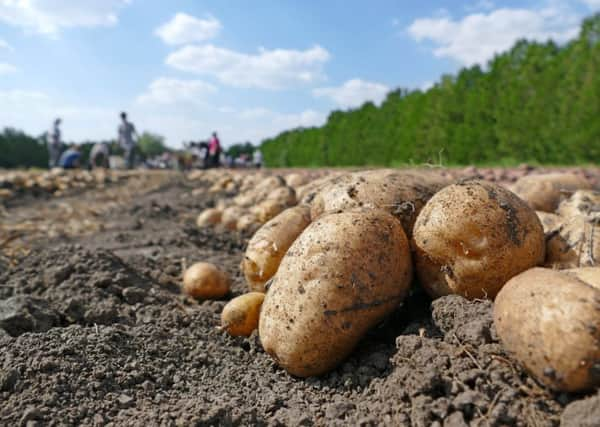Post-Brexit imports are a threat to Scots produce – Stephen Jardine


They are now as much a part of our food and drink scene as or the coffee shop on every corner but two decades ago they didn’t even exist.
It’s exactly 20 years since the first Farmers Market opened in Scotland. Back then it was born out of frustration at the collapse in trade, and negativity being thrown at the farming industry by the media because of the BSE crisis.
Advertisement
Hide AdAdvertisement
Hide AdBefore social media offered a platform for response, taking to the streets was the only way to reach the public and that is what sheep farmer Jim Fairlie did. He established the first market in Perth and quickly realised it offered a connection to the public they were keen to have. He could tell the story of his products and they could ask questions and reassure themselves about quality and provenance.
Pretty soon Jim was travelling the country helping other areas establish markets, and campaigning for more dialogue between farmers, consumers and government. I went with him to Dumfries for the launch of the local Famers Market and met lots of people eager to find a new way to shop and eat.
Now Scotland has over 50 Farmers Markets currently operating on a regular basis. Jim Fairlie looks back on the pioneering work done in Perth as a game changer for everyone. “There are obviously some caveats but our food drink and farming sector are in a far better shape now than they were 20 years ago. In terms of public engagement, increased industry turnover, exports and a real belief that Ambition 2030 is achievable, we have a lot to be positive about,” he said. However the anniversary comes at a time when industry and consumers face a bigger threat than ever before. If Farmers Markets were born out of the BSE crisis 20 years ago, the Brexit crisis of today requires a similarly bold response
Ambition 2030 aims to double the size of the food and drink sector to £30 billion in the next 12 years. The target was set when Scotland was riding high on a wave of producer and consumer confidence – and then came Brexit.
The quality larder with an international reputation we have established now faces the threat of trade deals that could see chlorinated chicken and hormone-injected beef on supermarket shelves and an influx of lamb and other produce that could simply put our own producers out of business.
Consumers like the Scottish brand. It guarantees safe, secure domestic food production but right now it is under threat. If farmers led the change 20 years ago, this time responsibility rests with consumers. More and more of us now realise from climate change to food and drink, how we spend our money makes a difference. Twenty years after the movement started in Perth, the latest addition to Scotland’s market scene has just opened in the Arches in Glasgow city centre.
The former nightclub space has been repurposed as a food, drink and market destination with the ambition to in time develop Scotland’s own version of London’s Borough Market. In Edinburgh a permanent producers food market has been a long-held ambition but slow to get off the ground. Maybe Brexit will be the boost that it needs.